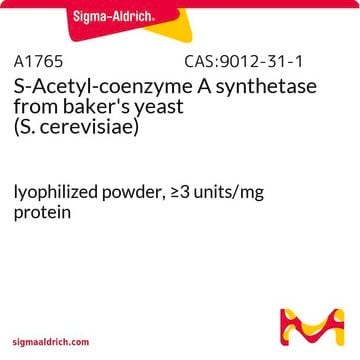A8008
5α-Androst-16-en-3-one
Synonym(s):
16-(5α)Androsten-3-one, 3-Keto-5α,16-androstene, Androstenone
About This Item
Recommended Products
biological source
synthetic (organic)
Quality Level
Assay
≥98% (TLC)
form
powder
mp
140-145 °C (lit.)
solubility
dichloromethane: 9.80-10.20 mg/mL, clear, colorless to faintly yellow
shipped in
ambient
storage temp.
room temp
SMILES string
[H][C@@]12CC[C@]3([H])[C@]([H])(CC[C@]4(C)C=CC[C@@]34[H])[C@@]1(C)CCC(=O)C2
InChI
1S/C19H28O/c1-18-9-3-4-16(18)15-6-5-13-12-14(20)7-11-19(13,2)17(15)8-10-18/h3,9,13,15-17H,4-8,10-12H2,1-2H3/t13-,15-,16-,17-,18-,19-/m0/s1
InChI key
HFVMLYAGWXSTQI-QYXZOKGRSA-N
Looking for similar products? Visit Product Comparison Guide
General description
Application
- to quantify its concentration in various fat tissues
- to study its trigeminal percept and implications on the rate of specific anosmia
- to study the effects of immunocastration on meat quality and sensory properties of pork bellies
Storage Class Code
11 - Combustible Solids
WGK
WGK 3
Flash Point(F)
Not applicable
Flash Point(C)
Not applicable
Certificates of Analysis (COA)
Search for Certificates of Analysis (COA) by entering the products Lot/Batch Number. Lot and Batch Numbers can be found on a product’s label following the words ‘Lot’ or ‘Batch’.
Already Own This Product?
Find documentation for the products that you have recently purchased in the Document Library.
Customers Also Viewed
Our team of scientists has experience in all areas of research including Life Science, Material Science, Chemical Synthesis, Chromatography, Analytical and many others.
Contact Technical Service









